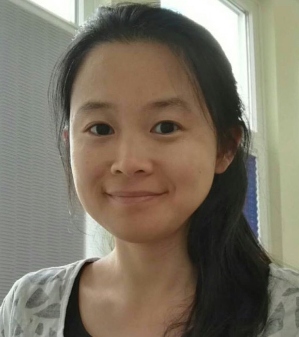Meet the Academic – Dr Weini Huang
We have spoken with Dr Weini Huang, Lecturer in Mathematical Biology at the School of Mathematical Sciences. Before joining the School in 2018, Dr Huang was a Postdoc in the Department of Tumour Biology at the Barts Cancer Institute for almost two years. In this blog post, she discussed her role at the School of Maths and her interdisciplinary research interests.

What do you enjoy the most about working at the School of Maths?
I have an interdisciplinary research background in mathematical biology, information system, evolutionary ecology and tumour biology. I really enjoy interacting with colleagues from different research fields in our School. I also like the atmosphere of our complex system groups. We had many nice conversations in the Senior Common Room, even virtually during this special time. Of course, I feel lucky to have very motivated and smart PhD students to work with, from the very start of my career as a supervisor.
Tell us about your research.
I work on stochastic models to understand diversity patterns in evolving biological systems such as cancer and host-parasite systems. One theoretical question we often start with is how stochasticity, e.g. random mutants and random segregation of DNA in cells, plays a role in the evolutionary process of our study systems. Together with a small group of four people, we apply our mathematical/computational models and predictions to explain quantitative observations in experimental and clinical data. Most of our projects are worked together with experimental labs in the medical school and in the Biology department of Queen Mary.
Have you always known you wanted to teach? What is your teaching style like?
When I was 21, I taught for the first time a big class of university students. I was replacing my master supervisor in his undergraduate teaching class, due to an emergency situation. I still remember how nervous I was standing on the big stage of our lecture hall. However, I was very happy that everything worked out well and students came to discuss the lecture materials. Since then, I think sharing knowledge with new students is the fun part of teaching. The lectures I took in my university time had an important role in leading me to my current career choice. Thus, when I teach (currently the undergraduate module Differential Equations), I like to share a bit of my own research whenever it fits the teaching content.
Any advice to students wanting to study Mathematics at Queen Mary?
The staff members at the School of Maths at Queen Mary are very nice, with a diverse and international education background; the Education Services team is very supportive, too. I would recommend that students follow the schedule of their modules and make the most of the fun part of learning.
Interested in studying mathematics? Find out more about our programmes at the School of Maths.